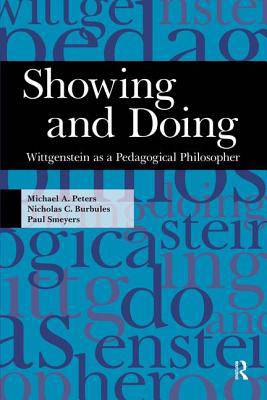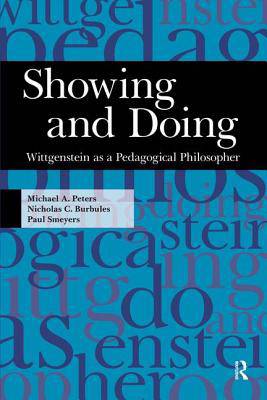
- Retrait gratuit dans votre magasin Club
- 7.000.000 titres dans notre catalogue
- Payer en toute sécurité
- Toujours un magasin près de chez vous
- Retrait gratuit dans votre magasin Club
- 7.000.0000 titres dans notre catalogue
- Payer en toute sécurité
- Toujours un magasin près de chez vous
Showing and Doing
Wittgenstein as a Pedagogical Philosopher
Michael A Peters, Nicholas C Burbules, Paul Smeyers
Livre broché | Anglais
119,45 €
+ 238 points
Format
Description
Three prominent Wittgenstein scholars introduce the broad educational significance of Ludwig Wittgenstein's work to a wider audience of educational researchers and practitioners through provocative, innovative, and playful readings of his work. They vividly demonstrate the influence of his thinking and its centrality to understanding our contemporary condition.
Wittgenstein fundamentally shaped contemporary theories of language, representation, cognition, and learning. The book also traces the "pedagogical turn" of his thinking during the period from 1920 to 1926. What is most radical about Wittgenstein's later work is that it suggests learning and initiation into practices are fundamental to understanding his philosophy. The book not only provides a new and fresh interpretation of Wittgenstein's thought but also explores a new way of thinking about education as a way of revealing the educational dimension of philosophical problems.Spécifications
Parties prenantes
- Auteur(s) :
- Editeur:
Contenu
- Nombre de pages :
- 264
- Langue:
- Anglais
Caractéristiques
- EAN:
- 9781594514494
- Date de parution :
- 01-04-10
- Format:
- Livre broché
- Format numérique:
- Trade paperback (VS)
- Dimensions :
- 160 mm x 228 mm
- Poids :
- 367 g

Les avis
Nous publions uniquement les avis qui respectent les conditions requises. Consultez nos conditions pour les avis.






